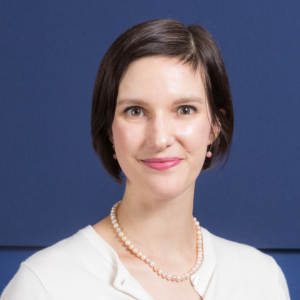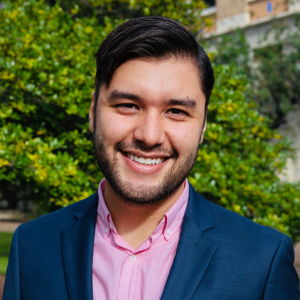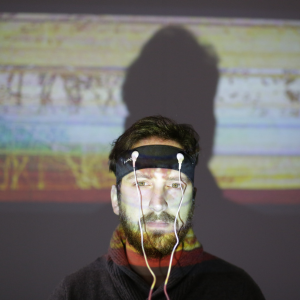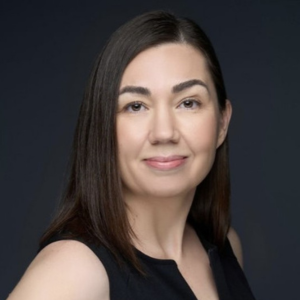Affordability Advocates are UTRGV faculty, students, and staff who have dedicated their time and effort to ensure students at UTRGV have access to high-quality course materials at a minimal cost to students. The University Library and Academic Affairs would like to recognize these efforts by showcasing their contributions to textbook affordability at UTRGV.
Academic Year 2025 - 2026 Advocates
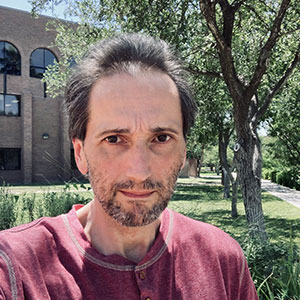 Dr. Jamie Starling is an Associate Professor in the Department of History at UTRGV. Originally from New Mexico and El Paso, Texas, he brings a regional perspective to his teaching and research. Dr. Starling offers a range of courses in U.S. history, Texas history, and the history of the U.S.-Mexico Borderlands, with a focus on connecting historical narratives to the lived experiences of students in the Rio Grande Valley.
Dr. Jamie Starling is an Associate Professor in the Department of History at UTRGV. Originally from New Mexico and El Paso, Texas, he brings a regional perspective to his teaching and research. Dr. Starling offers a range of courses in U.S. history, Texas history, and the history of the U.S.-Mexico Borderlands, with a focus on connecting historical narratives to the lived experiences of students in the Rio Grande Valley.
Course Redesign Project and Experience
In Spring 2024, Dr. Starling redesigned his HIST 1301: U.S. History I course by creating a custom course reader titled Rio Grande Sourcebook: https://doi.org/10.51734/mn0004. This resource was developed for use in HIST 1301: U.S. History I and later expanded to HIST 3333: History of the U.S.-Mexico Borderlands. By integrating this reader with other Open Educational Resources (OER), he eliminated textbook costs for 170 students in Spring 2024 and 90 students in Spring 2025.
The redesign not only reduced financial strain for students, who typically save between $50 and $100 each, but also allowed Dr. Starling to incorporate more localized and relevant historical materials. The curated content helped students engage more deeply with the subject matter by connecting national history to their own communities and regional experiences.
Student Feedback
Students initially expressed relief at not having to purchase a textbook, especially those managing tight budgets. Over time, many shared that they appreciated the course readings for their relevance and connection to local history. The use of materials that reflected their own communities made the content more meaningful and engaging.
Reflections
Dr. Starling found the transition to affordable course materials both practical and pedagogically enriching. The ability to customize reading allowed him to better align course content with student interests and regional context. While he acknowledges that there are courses where purchasing books may still be appropriate, he believes that adopting OER can significantly ease the financial burden on students, particularly those facing rising living expenses. He also noted that at least two other faculty members have adopted his course materials, further extending the impact of his work.
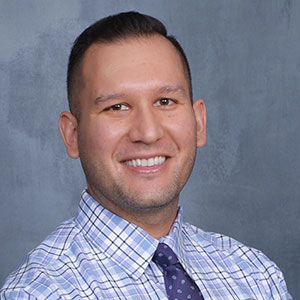 Michael Flores is a Lecturer of Marketing in the Robert C. Vackar College of Business and Entrepreneurship at UTRGV. A strong advocate for textbook affordability and student access, he was awarded the UTRGV Affordable Textbook Adoption Grant in 2023 for his work in implementing no-cost materials across three sections of Principles of Marketing (MARK 3300). His course design emphasizes real-world applications, AI-driven marketing tools, and interactive assignments, all delivered without the cost of a traditional textbook. Since 2021, Mr. Flores has also served as the Library Liaison for the Department of Marketing, where he collaborates with librarians to promote digital resource access, develop research guides, and support faculty in integrating open educational resources (OER) into their teaching. His efforts reflect a broader commitment to academic accessibility, digital innovation, and student-centered learning.
Michael Flores is a Lecturer of Marketing in the Robert C. Vackar College of Business and Entrepreneurship at UTRGV. A strong advocate for textbook affordability and student access, he was awarded the UTRGV Affordable Textbook Adoption Grant in 2023 for his work in implementing no-cost materials across three sections of Principles of Marketing (MARK 3300). His course design emphasizes real-world applications, AI-driven marketing tools, and interactive assignments, all delivered without the cost of a traditional textbook. Since 2021, Mr. Flores has also served as the Library Liaison for the Department of Marketing, where he collaborates with librarians to promote digital resource access, develop research guides, and support faculty in integrating open educational resources (OER) into their teaching. His efforts reflect a broader commitment to academic accessibility, digital innovation, and student-centered learning.
Course Redesign Project and Experience
As part of the 2023 UTRGV Affordable Textbook Adoption Grant, Michael Flores led a comprehensive redesign of his Principles of Marketing (MARK 3300) course. The project involved transitioning from a traditional, publisher-based textbook to an open educational resource (OER) model using the OpenStax’s Principles of Marketing textbook from Rice University. This shift was motivated by wanting to reduce financial barriers for students while maintaining academic rigor and industry relevance.
Mr. Flores carefully aligned each week’s content, assignments, and assessments with the OpenStax framework, supplementing the core material with custom-developed interactive activities, current case studies, and AI-based marketing tools. The redesign required a full reevaluation of course structure, including mapping chapters to learning outcomes and identifying areas where original content or real-time examples were needed. The result was a more dynamic and adaptable course that not only saved students money but also enhanced their engagement and understanding of marketing concepts. Since this implementation, all of Mr. Flores’ undergraduate and graduate marketing courses have adopted either low-cost or fully OER materials.
Student Feedback
Student reactions to the no-cost textbook model were positive. Many expressed genuine relief, noting that the savings allowed them to redirect funds toward essentials like transportation, childcare, or other academic expenses. Several students shared that this was the first time they had taken a course where materials were free and accessible from day one, which helped reduce stress and allowed them to fully participate from the start. Comments such as “It made a huge difference this semester” and “Finally a class that cares about how much we’re spending” were common. Students also appreciated the digital format of the OpenStax text, which allowed them to study on their phones or laptops without worrying about shipping delays or rental deadlines. The consistent access and integration of materials into the course helped them stay on track and feel more confident in class discussions.
Reflections
Redesigning the course using OER was both challenging and rewarding for Mr. Flores. The process pushed him to be more intentional and creative in how he delivered content, integrating tools and examples that were more relevant to students’ academic and professional goals. He found that the flexibility of OER allowed him to keep the course agile; updating materials to reflect current trends, incorporating AI-driven content creation tools, and localizing case studies to better connect with students in the Rio Grande Valley.
Mr. Flores encourages other faculty to consider adopting OER, emphasizing that the benefits extend far beyond cost savings. The shift transformed his classroom dynamic, increased student trust, participation, and performance. His advice to colleagues is to start small, collaborate with library staff, and explore existing resources. For him, the experience reaffirmed that accessibility and academic excellence can go hand in hand, as well as thoughtful course design using OER can lead to more meaningful and impactful teaching.
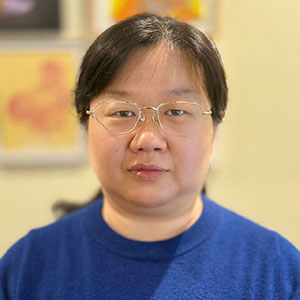 Ms. Ning Wang is a Lecturer in the School of Integrative Biological and Chemical Sciences at UTRGV where she has been teaching a wide range of chemistry courses for over seven years. Her students come from diverse academic backgrounds, including science, engineering, healthcare, nursing, and medical programs. In addition to her teaching responsibilities, she also serves as the laboratory coordinator for Chemistry for Engineering courses, overseeing curriculum design and lab instruction. Throughout her career, Ms. Wang has remained committed to an engaging, and student-centered learning environment. She is especially passionate about helping students build strong foundations in chemistry and develop confidence in their scientific abilities.
Ms. Ning Wang is a Lecturer in the School of Integrative Biological and Chemical Sciences at UTRGV where she has been teaching a wide range of chemistry courses for over seven years. Her students come from diverse academic backgrounds, including science, engineering, healthcare, nursing, and medical programs. In addition to her teaching responsibilities, she also serves as the laboratory coordinator for Chemistry for Engineering courses, overseeing curriculum design and lab instruction. Throughout her career, Ms. Wang has remained committed to an engaging, and student-centered learning environment. She is especially passionate about helping students build strong foundations in chemistry and develop confidence in their scientific abilities.
Course Redesign Project and Experience
Ms. Wang redesigned her CHEM 1309: Chemistry for Engineering course, a core requirement for engineering majors. To address the financial strain that comes from commercial textbooks, she transitioned the course to a zero-cost textbook model by adopting Open Educational Resources (OER).
With the support of Open Education Librarian, Ms. Wang curated a collection of free, high-quality educational materials to replace the traditional textbook. Utilizing the “5 R’s of OER” allowed her to tailor the content to better align with her students’ academic and professional goals. She incorporated real-world applications and interdisciplinary examples for engineering students, enhancing both engagement and accessibility. This shift not only alleviated financial pressure but also ensured that all students had immediate access to course materials from the first day of class.
Student Feedback
Student feedback was overwhelmingly positive. Many expressed relief upon learning they would not need to purchase a textbook, especially those managing tight budgets or working part-time jobs. Beyond the financial savings, students appreciated the accessibility and relevance of the materials. The online availability of the OER resources from day one meant that everyone could begin the course on equal footing. Several students also noted that the real-world examples and tailored content made the material more engaging and applicable to their field of study.
Reflections
Reflecting on the experience, Ms. Wang emphasizes that adopting OER is not just about reducing costs, it’s about transforming the learning experience. The process encouraged her to be more intentional and creative in designing course content. With the “5 R’s of OER”, she was able to include diverse, real-world examples and interdisciplinary applications that connected with her students. She encourages other faculty to consider this transition and reassures them that they don’t have to navigate it alone. For Ms. Wang, the project was not only a success in terms of affordability but also a meaningful step toward more engaging and effective teaching.
 Dr. Satya Kachiraju is a Lecturer III in the Department of Physics and Astronomy at UTRGV. Dr. Kachiraju holds a Ph.D. in Physics from Texas Tech University, an M.S. in Physics from the University of Alabama in Huntsville, and an M.S. in Astronomy from Osmania University in Hyderabad, India. His research focuses on applied physics, particularly “Surface Phonon polaritonic metasurfaces for controlling the mid-infrared light.” Dr. Kachiraju designed and fabricated a novel multifunctional nanodevice for active metasurface and received a patent for his technology. Dr. Kachiraju has authored or co-authored several publications in peer-reviewed journals and presented his research work at national and international conferences such as APS, CLEO and NANOSMAT. Dr. Satya Kachiraju is passionate about innovative teaching and has integrated pedagogical approaches such as Family-Centered Pedagogy (FCP), Team-Based Learning (TBL) Effective College Instruction by Association of College and University Educators (ACUE), Digital21, Quality Matters (QM) Rubric components into his courses. His dedication to teaching excellence was recognized with the UTRGV Faculty Excellence Award in Teaching for the 2022–2023 academic year.
Dr. Satya Kachiraju is a Lecturer III in the Department of Physics and Astronomy at UTRGV. Dr. Kachiraju holds a Ph.D. in Physics from Texas Tech University, an M.S. in Physics from the University of Alabama in Huntsville, and an M.S. in Astronomy from Osmania University in Hyderabad, India. His research focuses on applied physics, particularly “Surface Phonon polaritonic metasurfaces for controlling the mid-infrared light.” Dr. Kachiraju designed and fabricated a novel multifunctional nanodevice for active metasurface and received a patent for his technology. Dr. Kachiraju has authored or co-authored several publications in peer-reviewed journals and presented his research work at national and international conferences such as APS, CLEO and NANOSMAT. Dr. Satya Kachiraju is passionate about innovative teaching and has integrated pedagogical approaches such as Family-Centered Pedagogy (FCP), Team-Based Learning (TBL) Effective College Instruction by Association of College and University Educators (ACUE), Digital21, Quality Matters (QM) Rubric components into his courses. His dedication to teaching excellence was recognized with the UTRGV Faculty Excellence Award in Teaching for the 2022–2023 academic year.
Course Redesign Experience
In Fall 2023, Dr. Satya Kachiraju redesigned the Introduction to Astronomy I (ASTR 1401) course for both face-to-face and online formats with the goal of eliminating textbook costs for students. To achieve this, he curated and integrated a variety of Open Educational Resources (OER) to build a comprehensive and engaging curriculum. The course materials were developed by merging content from several high-quality sources, including Introduction to Astronomy from Achieving the Dream, Astronomy 2e from OpenStax, Fanshawe College Astronomy published through Pressbooks, and Astronomy 2e from Physics LibreTexts. This integration of resources allowed him to tailor the course content to meet specific learning objectives while ensuring accessibility for all students. As a result of this redesign, students saved approximately $13,462 per semester.
Student Feedback
Students responded positively to the redesigned course. They appreciated the accessibility and quality of the materials and were especially grateful for not having to purchase a textbook. The OER materials provided all the necessary content at zero cost, which enhanced their learning experience.
Reflections
Dr. Satya Kachiraju found the redesign process both rewarding and empowering. The flexibility of OER allowed him to tailor the course content to better meet student needs. He encourages other faculty to explore OER, noting that it not only supports student success but also promotes innovative teaching practices.
Academic Year 2024 - 2025 Advocates
 Alexandre Couture Gagnon is an Associate Professor in the Department of Political Science at The University of Texas Rio Grande Valley (UTRGV). She was previously an Assistant Professor at the École nationale d'administration publique (ENAP) in Québec City. Her research focuses on public policy in minority nations and the United States. Her work has been published in academic chapters and journals. She also wrote her first book, Le délire de l'empire américain, with Alexandre Sirois. Since 2023, she has been the President of the Association for Canadian Studies in the United States (ACSUS).
Alexandre Couture Gagnon is an Associate Professor in the Department of Political Science at The University of Texas Rio Grande Valley (UTRGV). She was previously an Assistant Professor at the École nationale d'administration publique (ENAP) in Québec City. Her research focuses on public policy in minority nations and the United States. Her work has been published in academic chapters and journals. She also wrote her first book, Le délire de l'empire américain, with Alexandre Sirois. Since 2023, she has been the President of the Association for Canadian Studies in the United States (ACSUS).
Course Redesign Project and Experience
Dr. Couture Gagnon redesigned her POLS 2306 Texas Government and Politics course by utilizing chapters from various books, newspaper articles, reports, and academic articles to ensure students did not need to purchase a textbook for this undergraduate course. Typically each section of this core course enrolls about 60 first-year or second-year students. Since she no longer assigns a textbook, the students are relieved of the burden of purchasing a textbook saving each student anywhere from $45 to $144.
Dr. Couture Gagnon found this redesign experience both challenging and rewarding. She believes it would have been extremely frustrating without the help of the UTRGV librarians. Throughout this process, the librarians recommended resources, found resources from around the state, obtained their usage licenses, and checked on copyright for guidance on the use of each material. All of this support allowed Dr. Couture Gagnon to offer a zero-cost course for her students.
Student Feedback
Overall the students had a positive reaction to her course. The students were pleased to have readings that they found interesting in comparison to the readings assigned from a typical full-length textbook that "[inevitably] include boring chapters." The students also enjoyed being assigned readings that were all up to date. They were also grateful they did not have to worry about paying for a textbook.
Reflections
Upon reflection, Dr. Couture Gagnon was pleased to include zero-cost readings in her course that were all interesting for her students and up to date. She would also encourage other faculty who are thinking about adopting affordable teaching materials in their course to reach out to the UTRGV Librarians about copyright, recommendations, and readings you cannot find. They are very willing to help and support you through this process.
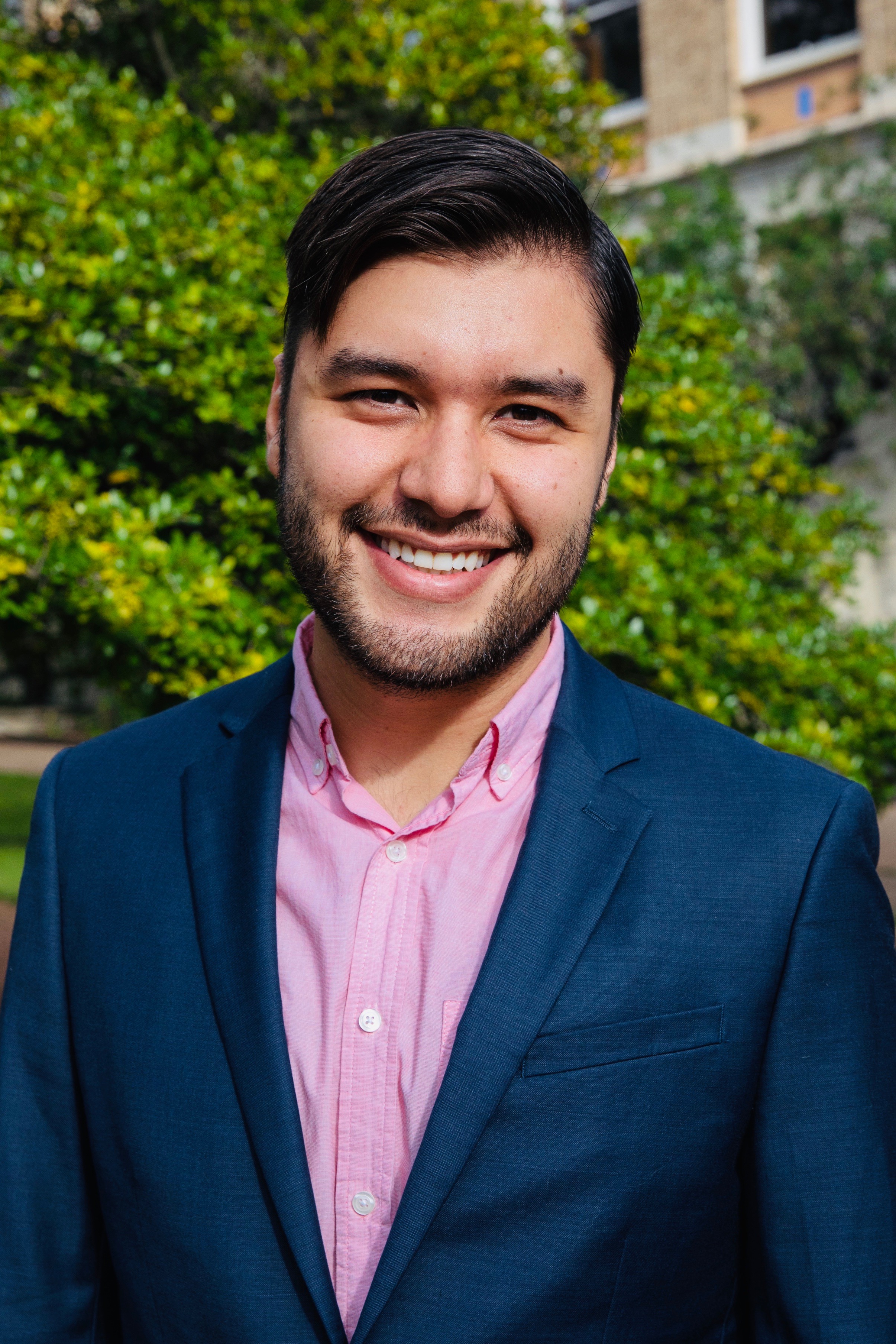 Dr. Luis M. Fernández has a deep desire to make a lasting impact on the education community across all levels. Raised in the bilingual environment of the Rio Grande Valley (RGV) of Texas, Dr. Fernández's journey instilled in him a profound passion for enhancing educational experiences, particularly for Emergent Bilingual (EB) Latina/o/x students in mathematics.
Dr. Luis M. Fernández has a deep desire to make a lasting impact on the education community across all levels. Raised in the bilingual environment of the Rio Grande Valley (RGV) of Texas, Dr. Fernández's journey instilled in him a profound passion for enhancing educational experiences, particularly for Emergent Bilingual (EB) Latina/o/x students in mathematics.
His upbringing has fueled his dedication to identifying instructional programs and methodologies that elevate the quality of mathematics education for EB students. Dr. Fernández is focused on developing resources and facilitating professional development opportunities for educators, equipping them with the tools to leverage EB skills for both English acquisition and content comprehension simultaneously.
Moreover, he delves into the underlying causes of apparent disparities in college students’ mathematical proficiency, such as the necessity for developmental courses. Dr. Fernández also examines the escalating demands placed on public high schools concerning mathematics achievement, seeking to understand and address the challenges posed by these rigorous expectations.
In essence, Dr. Fernández's work reflects his unwavering commitment to advancing educational equity and excellence, particularly in the realm of mathematics education for EBs in the RGV and elsewhere.
Course Redesign Project and Experience
In Fall of 2023, Dr. Fernandez led an initiative to revamp his "Fundamentals of Mathematics 2" (MATH 1351) course by merging two OER textbooks into one comprehensive resource. This task aimed to alleviate the financial burden on his students by eliminating the need for them to purchase expensive textbooks. Additionally, Dr. Fernandez integrated a free online homework system called "MyOpenMath," which conveniently offered pre-existing templates aligned with the combined textbooks, enhancing accessibility and further reducing costs for his students.
Redesigning and rebuilding his course using affordable course materials was an incredibly rewarding experience. It allowed him to be more creative and flexible in tailoring the content to meet the specific needs of his students. Moreover, knowing that he was contributing to making education more accessible and equitable was incredibly fulfilling.
Student Feedback
The feedback from his students when they discovered they did not have to purchase a textbook was overwhelmingly positive. Many expressed relief and gratitude for the financial relief it provided. Not having to worry about the financial burden of buying a textbook allowed his students to focus more on their studies and excel in the course.
Reflections
Dr. Fernandez’s experience with adopting OER and affordable teaching materials has been transformative, both for him as an educator and for his students. He believes it's important for other faculty considering this approach to understand that it not only benefits students financially but also enhances their learning experience. By embracing OER and affordable materials, educators can promote inclusivity, innovation, and student success.
Embracing OER and affordable course materials has truly revolutionized his teaching practices. It has allowed him to break down barriers to education and empower his students to succeed. He encourages fellow educators to explore the vast resources available and consider the profound impact they can make by adopting these materials in their own courses. Together, he believes we can create a more accessible and equitable educational landscape for all students.
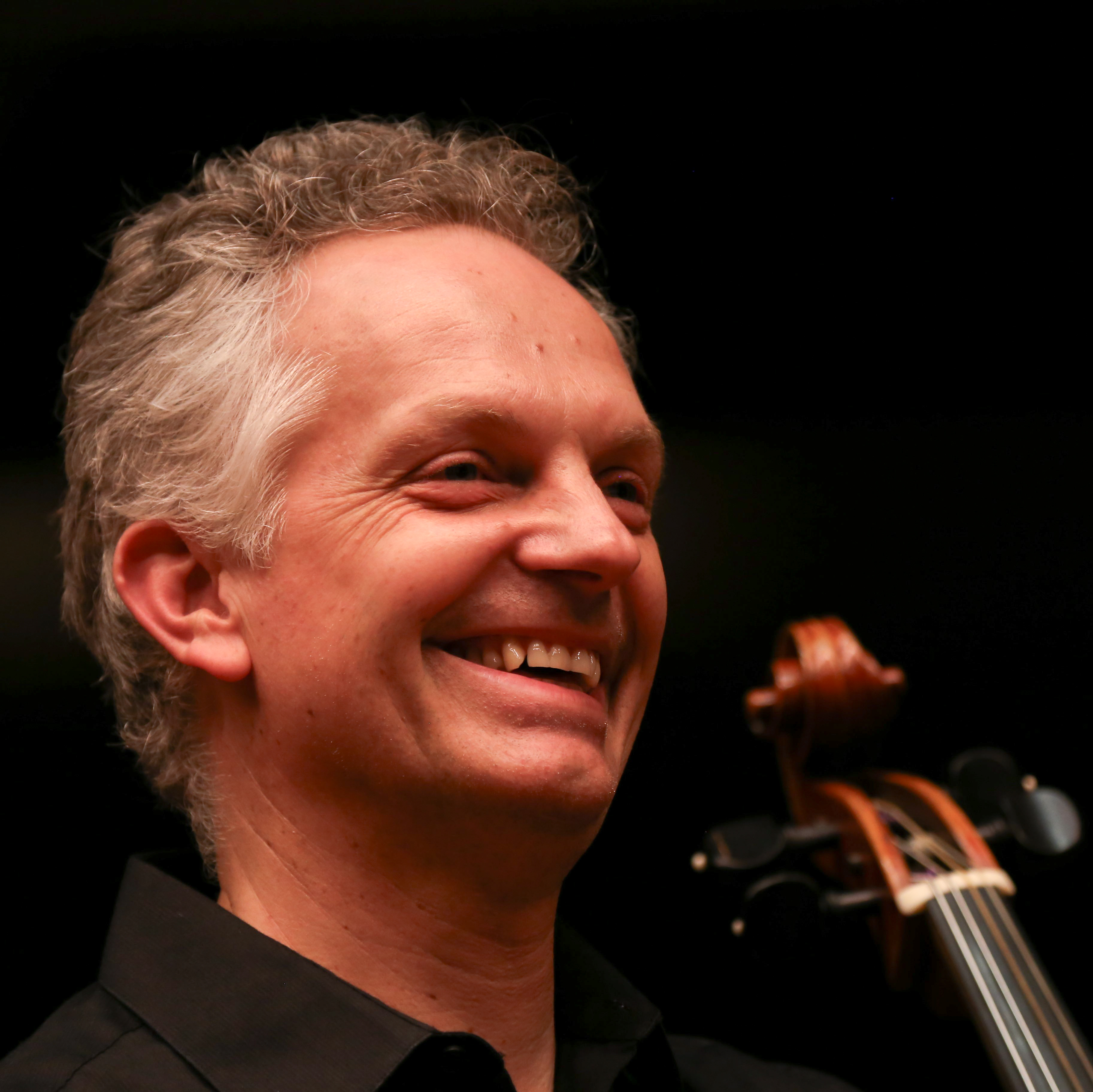 Dr. Tido Janssen has served on the faculty at the University of Texas Rio Grande Valley since 2010. His main teaching responsibilities in the UTRGV School of Music are Applied Cello, Chamber Music, Methods Classes for Music Majors, and repertoire and pedagogy classes for musicians.
Dr. Tido Janssen has served on the faculty at the University of Texas Rio Grande Valley since 2010. His main teaching responsibilities in the UTRGV School of Music are Applied Cello, Chamber Music, Methods Classes for Music Majors, and repertoire and pedagogy classes for musicians.
He is the founder and director of the UTRGV Cello Festival hosting cellists from the Rio Grande Valley to work with nationally and internationally known cellists.
A native of Germany, Dr. Janssen studied cello performance at Folkwang Hochschule für Musik in Duisburg (Germany) before continuing his studies in the US. He holds a Master of Music degree from Boston University, and a Doctor of Musical Arts degree from the University of North Texas.
Before joining the music faculty at UTRGV, Dr. Janssen served on the faculty of the University of Lethbridge in Alberta, Canada, and Hardin Simmons University in Abilene, Texas. As a charter member of the University of Lethbridge faculty ensemble Trio Amaranth, he has performed extensively throughout western Canada. In Abilene, TX, he was Principal Cellist of the Abilene Philharmonic and Abilene Opera Orchestras, and founding director of the Abilene Summer Music Festival, an orchestra camp for middle and high school students.
As a performer Dr. Janssen has repeatedly appeared in Germany, The Netherlands, Spain, Italy, Austria, Canada, and throughout the US. He has recorded for Deutsche Welle, Public Radio, and Centaur Records and has been a member of the New Hampshire Music Festival Orchestra since 2000, currently serving as the co-executive director.
Course Redesign Project and Experience
Dr. Janssen has designed his Music Appreciation class with affordability in mind for many years. In 2023 he decided to include Open Educational Resources (OER) to the list of recommended learning materials for his class.
With this additional resource, he redesigned the lectures for his classes to include information from the Open Educational Resource (OER) textbook which is available for free ($0) in the Open Textbook Library. He also created PowerPoint lectures for his students which directed them to optional additional in-depth reading within the OER textbook. These supplemental readings were not required to succeed in the class but provided an opportunity for students to delve deeper into various topics of interest.
Reflections
Overall Dr. Janssen believed including the OER textbook option to his course provided him a lot of flexibility to design the semester coursework around his ideas without being too closely tied to the outline of a textbook. This proved to be an interesting challenge but he found it helpful to add a solid OER reference for his students. He did not receive any direct student feedback, but he did see a large jump in the enrollment in his class. After implementing this new course structure, he believes this was the perfect option for him and his courses. He wants to thank the UTRGV Librarians for all of their encouragement and support through this process.
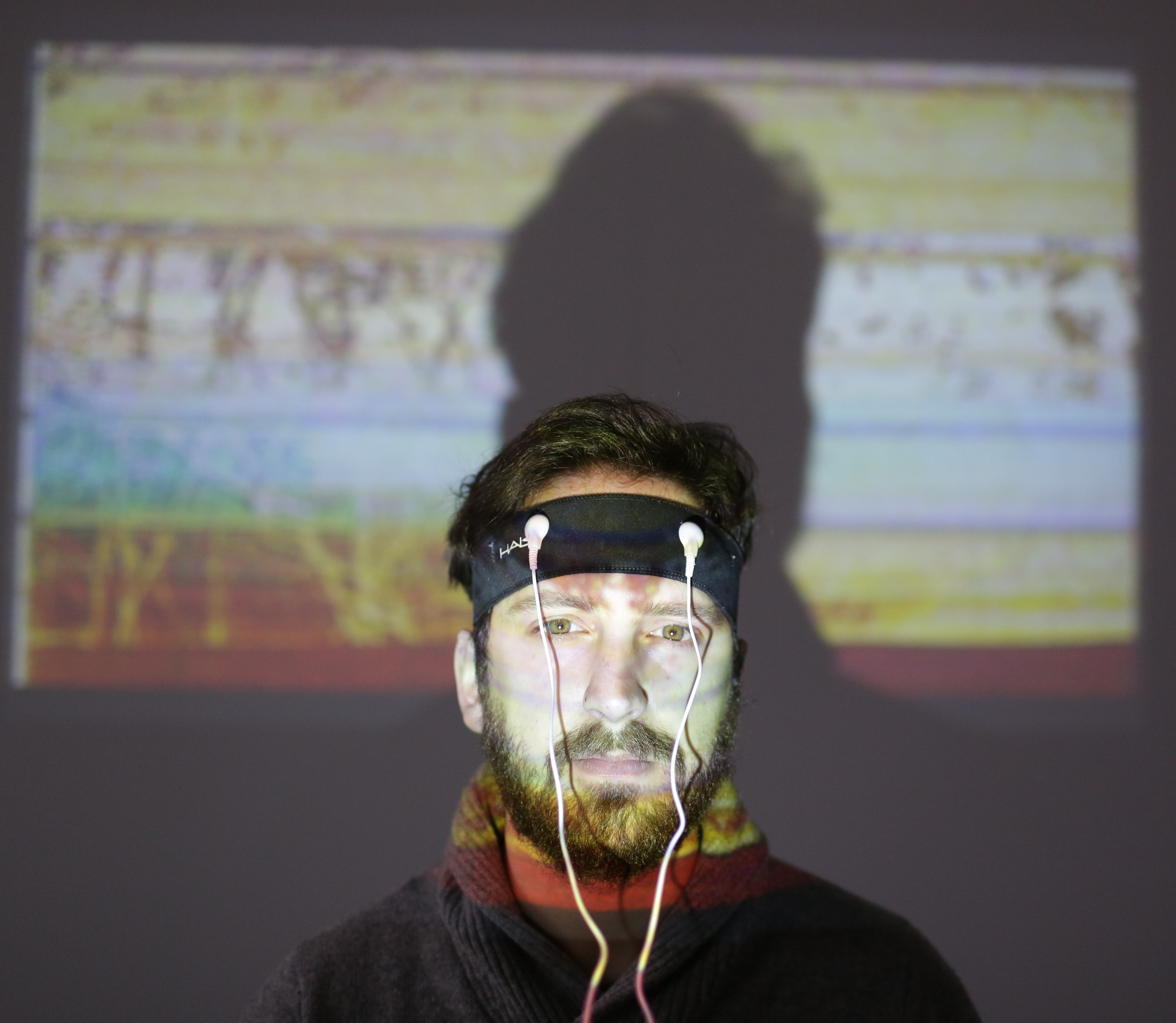 Dr. Anthony T. Marasco is an Assistant Professor of Music Technology and Composition at The University of Texas Rio Grande Valley. Across the United States as well as in Norway, Italy, Brazil, Denmark, and Canada, his works and research have been featured at festivals such as New Interfaces for Musical Expression (NIME), the Web Audio Conference, the Networked Music Festival, the Toronto International Electroacoustic Symposium, the Society for Electro-Acoustic Music in the U.S. (SEAMUS), Electroacoustic Barn Dance, New York City Electroacoustic Music Festival, the International Computer Music Conference (ICMC), Mise-En Festival, Montreal Contemporary Music Lab, Electric LaTex, and Omaha Under the Radar.
Dr. Anthony T. Marasco is an Assistant Professor of Music Technology and Composition at The University of Texas Rio Grande Valley. Across the United States as well as in Norway, Italy, Brazil, Denmark, and Canada, his works and research have been featured at festivals such as New Interfaces for Musical Expression (NIME), the Web Audio Conference, the Networked Music Festival, the Toronto International Electroacoustic Symposium, the Society for Electro-Acoustic Music in the U.S. (SEAMUS), Electroacoustic Barn Dance, New York City Electroacoustic Music Festival, the International Computer Music Conference (ICMC), Mise-En Festival, Montreal Contemporary Music Lab, Electric LaTex, and Omaha Under the Radar.
Course Redesign Project and Experience
Dr. Anthony T. Marasco redesigned his courses in the Music Technology degree path to use no-cost and open education resources. He found the process was challenging at times, but very rewarding. The music technology field has embraced no-cost publications and online multimedia resources for years, and finding materials for most topics and subject matters was easy. Finding materials that included explanations and definitions of more scientific subjects around acoustics and even music theory was a bit more challenging.
Student Feedback
His students responded positively to being able to explore class topics in both free online readings and multimedia materials (videos, audio file examples, etc.) versus needing to purchase a traditional textbook.
Reflections
Dr. Marasco feels like the benefits of providing students with an affordable, up-to-date, customizable set of learning materials for their courses is a great way to help students meet their goals of getting a great education without incurring excessive costs.
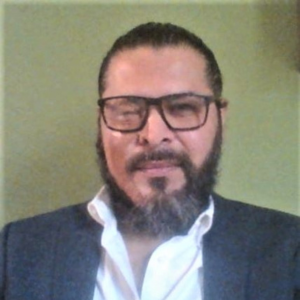 Mr. Jose Heribeto Ponce is a native of Brownsville, Texas raised across the border in Matamoros, Mexico. He learned English as a second language and obtained a GED by age 17. He graduated with a Bachelor's in Computer Science and a Master's in Mathematics from the University of Texas at Brownsville (UTB). After completing a second Master's in Applied Mathematics at Iowa State University (ISU), he started teaching at Del Mar College in Corpus Christi, Texas, and eventually at UTRGV beginning in 2015. Currently, he is a Lecturer III at the School of Mathematical and Statistical Sciences (SMSS). He created bilingual math courses (College Algebra, Elementary Statistics, and Precalculus), and he has coordinated the Elementary Statistics courses since 2018.
Mr. Jose Heribeto Ponce is a native of Brownsville, Texas raised across the border in Matamoros, Mexico. He learned English as a second language and obtained a GED by age 17. He graduated with a Bachelor's in Computer Science and a Master's in Mathematics from the University of Texas at Brownsville (UTB). After completing a second Master's in Applied Mathematics at Iowa State University (ISU), he started teaching at Del Mar College in Corpus Christi, Texas, and eventually at UTRGV beginning in 2015. Currently, he is a Lecturer III at the School of Mathematical and Statistical Sciences (SMSS). He created bilingual math courses (College Algebra, Elementary Statistics, and Precalculus), and he has coordinated the Elementary Statistics courses since 2018.
Course Redesign Project and Experience
Mr. Ponce redesigned his Precalculus course in a bilingual format to align with the University’s B3 initiatives. He integrated the OpenStax Precalculus textbook as the main teaching material because it is free to access online, students can download a PDF copy, and it is available in both English and Spanish. While redesigning the course he created all new learning content including lecture notes, activities, and projects. All of these open materials and resources were provided so students could access their assigned readings at no cost. His course also includes a homework platform for enhanced student engagement and learning. Mr. Ponce partnered with McGraw Hill to obtain a special low price for our UTRGV bilingual students to use the ALEKS courseware to complete course assignments. This bilingual courseware allows students to complete homework, exams, and other assignments. By advocating for his students he was able to have his course within the university’s low-cost designation.
Student Feedback
Each of Mr. Ponce’s students saved hundreds of dollars with the new implementation of affordable course materials. Basic monolingual Precalculus textbooks, usually priced at $280, are now free in my course because of the OpenStax open textbooks. Mathematical courseware (ALEKS) for students to complete practice problems usually cost $80 per course per semester and is available for half the price, $40 because of Mr. Ponce's advocacy for his students. His students were glad they didn't have to stress about buying a textbook and could jump right into studying the materials free of such worries.
Reflections
Overall, Mr. Ponce believes it was a rewarding experience knowing his inclusive practices created opportunities for more students to succeed in STEM. Utilizing Open Educational Resources is a valuable option for teaching courses at our institution. Students value our efforts, feel included, and thrive in an open and safe learning environment. In addition to the course's affordability and accessibility, by being directly involved in the instructional design, we can ensure the quality of the courses we offer at UTRGV.
He would like to thank the affordability project and library staff who were involved in the design of these courses. Collaboration with university resources and interdisciplinary efforts are essential to achieve inclusive and quality instruction at UTRGV.
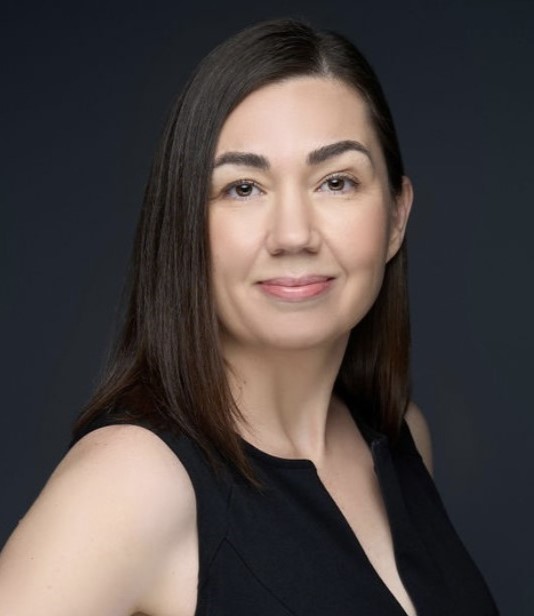 Rachel L. Rayburn is an Associate Professor of Criminal Justice at The University of Texas – Rio Grande Valley (UTRGV). She holds a B.S. degree from Florida State University and a Ph.D. in Sociology from The University of Central Florida. Prior to joining UTRGV, Dr. Rayburn worked at Purdue University Fort Wayne as an Assistant and Associate Professor of Public Policy. Her research examines why and how people leave lives of criminal activity. She has published articles on homelessness, drugs, and desistance from crime that have appeared in journals such as Deviant Behavior, Applied Social Science, Society, and Sociology Health Review.
Rachel L. Rayburn is an Associate Professor of Criminal Justice at The University of Texas – Rio Grande Valley (UTRGV). She holds a B.S. degree from Florida State University and a Ph.D. in Sociology from The University of Central Florida. Prior to joining UTRGV, Dr. Rayburn worked at Purdue University Fort Wayne as an Assistant and Associate Professor of Public Policy. Her research examines why and how people leave lives of criminal activity. She has published articles on homelessness, drugs, and desistance from crime that have appeared in journals such as Deviant Behavior, Applied Social Science, Society, and Sociology Health Review.
Course Redesign Project and Experience
Dr. Rayburn has been engaged with affordable course material alternatives for many years. One of her favorite course redesigns was for an alternative core graduate criminal justice course titled Criminal Justice Policy Analysis (CRIJ 6306). In this course, students are expected to critically analyze and critique criminal justice policy, the operation of the criminal justice system, and its effects on individuals, communities, and society. Due to the wide variety of topics in this course, such as mass incarceration, race, immigration, gangs, and poverty, it is crucial to have a wide variety of books available for students. The library has been instrumental in providing students access to their assigned course materials at no cost to our students.
Redesigning and rebuilding this course was relatively straightforward with the help of the Textbook Affordability Program. Before considering adoption, Dr. Rayburn had plenty of time to familiarize herself with course materials and just the right amount of guidance from librarians and staff.
Reflections
Overall Dr. Rayburn believes faculty should just try it out! She encourages faculty to apply for the Affordable Textbook Adoption Grant because there are options available through the library that faculty may be unaware of. For example, she wanted to incorporate a recent text by NYU Press, and the library was able to help students purchase an online version.
She is very grateful this program exists. Without any financial aid available at the graduate level, her students really appreciated the availability of free course materials through the library. It has also saved her a lot of time in preparing new courses.
 Youngki Woo is an assistant professor in the Department of Criminal Justice at the University of Texas Rio Grande Valley. He obtained his Ph.D. from Washington State University in 2019. His research interests include theory testing, correctional institutions, procedural justice and legitimacy of legal authorities, and quantitative methods. His work has been widely published in the field of criminology and criminal justice.
Youngki Woo is an assistant professor in the Department of Criminal Justice at the University of Texas Rio Grande Valley. He obtained his Ph.D. from Washington State University in 2019. His research interests include theory testing, correctional institutions, procedural justice and legitimacy of legal authorities, and quantitative methods. His work has been widely published in the field of criminology and criminal justice.
Course Redesign Project and Experience
With the guidance of professional librarians (Thank you Gabrielle and Justin!) in 2023, he redesigned two criminal justice core courses, Introduction to Criminal Justice (CRIJ 1301) and Research Methods (CRIJ 6308), utilizing Open Educational Sources (OER). Dr. Woo created custom lecture slides for all textbook chapters in these courses. He also created short weekly videos to engage his undergraduate students. Additionally, he curated supplemental materials such as journal articles and multimedia resources for student assignments and study aids. The zero-cost course model received positive feedback from students, as evidenced by their favorable course evaluations. Though the process of course redesign was time-consuming, the academic and personal satisfaction derived from seeing his students benefit from the new materials was immensely gratifying.
He found redesigning and rebuilding his course using affordable course materials was both challenging and rewarding. It required a significant investment of time and effort to research and select appropriate Open Educational Sources (OER) that aligned with the course content and learning objectives. Adapting these materials to fit the specific needs of his courses and creating supplementary resources such as lecture slides and videos added to the workload.
However, the process was also incredibly fulfilling. Knowing that he was able to provide his students with high-quality educational resources at zero cost alleviated financial burdens and increased accessibility to learning. Witnessing the positive response from students, who appreciated the affordability and quality of the materials, was particularly rewarding. Additionally, the experience allowed him to explore innovative teaching methods and foster a sense of creativity in course design.
Student Feedback
The feedback from students upon discovering they didn't have to purchase a textbook was overwhelmingly positive. Many expressed gratitude for the financial relief, as textbooks can often be a significant expense. Students appreciated the opportunity to access course materials at no cost, which made the learning experience more accessible and inclusive. Overall, students felt empowered by the elimination of textbook costs and expressed enthusiasm for the use of OER in the course. This feedback reinforced the value of adopting affordable course materials and highlighted the importance of promoting equity and accessibility in education.
Reflections
Reflecting on his experience, he would like to offer some insights that could benefit other faculty considering the adoption of Open Educational Resources (OER). First, providing students with zero-cost course materials can enhance student engagement and satisfaction. When students feel that their financial concerns are being addressed, they can focus more on their learning and academic success. Additionally, utilizing OER or affordable teaching textbooks can significantly enhance accessibility and equity in education by reducing financial barriers for students. Second, adopting OER allows for greater flexibility and customization in course design. Faculty members have the freedom to adapt and modify materials to suit their teaching style and the unique needs of their students. This flexibility promotes innovation in curriculum development.
Overall, his experiences with OER and affordable course materials have been overwhelmingly positive, reaffirming the value of accessible, high-quality education for all. He encourages fellow educators to embrace OER as a powerful tool for positive change in higher education and to join in the collective effort to create a more equitable and inclusive learning landscape.
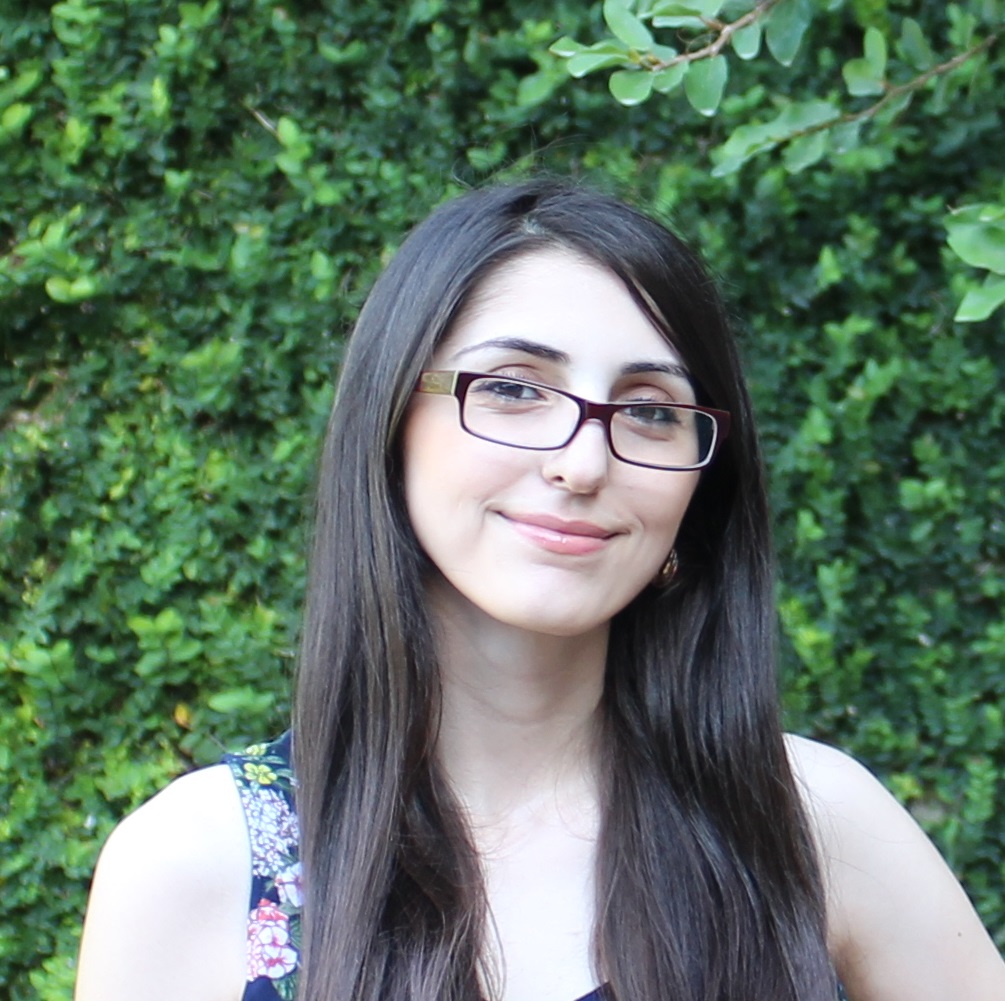 Srbuhi Yolchinyan is originally from Armenia and moved to the United States to pursue a Master's in Physics from UTRGV. She has been working as a lecturer in the Department of Physics and Astronomy since graduation. She has a BS in Chemistry from Armenian State Pedagogical University. This degree provides her with an intimate understanding of the challenges non-Physics majors could face when taking Physics classes.
Srbuhi Yolchinyan is originally from Armenia and moved to the United States to pursue a Master's in Physics from UTRGV. She has been working as a lecturer in the Department of Physics and Astronomy since graduation. She has a BS in Chemistry from Armenian State Pedagogical University. This degree provides her with an intimate understanding of the challenges non-Physics majors could face when taking Physics classes.
Course Redesign Project and Experience
Ms. Yolchinyan completely redesigned her General Physics course to move away from traditional course materials and adopt an OpenStax Open Educational Resources. These openly licensed College Physics resources allowed her the opportunity to redesign her course and all her lectures. She also created new PowerPoint slides and designed homework assignments that are completely free for students. The freely available textbook from OpenStax allowed her to move away from costly traditional textbooks and homework assignment websites. Her students were happy to use the OpenStax textbook and lecture materials that are freely available to them. They were also happy to have homework that was completely free of cost.
Reflections
Initially, Ms. Yolchinyan was hesitant to adopt OER textbooks. She was not sure how the quality of free textbooks would compare to traditional textbooks. However, after an initial review of the College Physics textbooks from OpenStax, she decided that the cost savings for her students far outweighed the efforts spent creating lecture materials from scratch. The experience was positive and provided her the opportunity to implement creative and fresh ideas into her course. She felt very fulfilled by the entire process.
Academic Year 2023 - 2024 Advocates
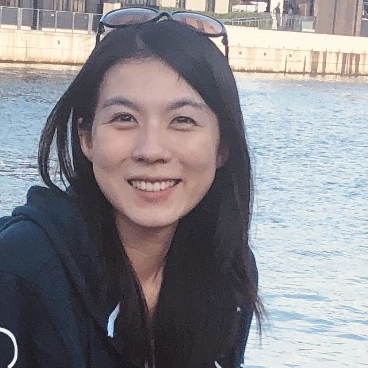 Dr. Wan-Lin Chang is an Assistant Professor and the Basic Course Director at the Department of Communication. The courses she teaches include Introduction to Communication and Interpersonal Communication at the undergraduate level and Communication Education at the graduate level. Her research interests include instructional communication, health communication, family communication, and interpersonal communication. She has several publications in peer-reviewed journals and more than 50 conference presentations.
Dr. Wan-Lin Chang is an Assistant Professor and the Basic Course Director at the Department of Communication. The courses she teaches include Introduction to Communication and Interpersonal Communication at the undergraduate level and Communication Education at the graduate level. Her research interests include instructional communication, health communication, family communication, and interpersonal communication. She has several publications in peer-reviewed journals and more than 50 conference presentations.
Course Redesign Project and Experience
Dr. Chang redesigned COMM 1311: Introduction to Communication. This is one of the General Education core courses offered by the College of Liberal Arts. The Department of Communication provides 45~50 sections of COMM 1311 each academic year and averages 35 students per section.
Since COMM 1311 is a core course, enrolled students usually come from diverse economic backgrounds and have very different majors. In fact, for most of the COMM 1311 students, this is the only communication course they take throughout their higher education journey. This is not a “Major” course so most students have less incentive to spend $80~$140 on the textbook. Instead, students rely on lectures to gain the information needed for the course.
As a basic course director, Dr. Chang tried to find ways to ensure her students have access to all their course materials. With support from the Affordable Textbook Adoption Grant in Fall 2022, she completely redesigned COMM 1311 to be taught with zero-cost resources. This way, COMM1311 students can access the materials without having to worry about financial barriers. The OER not only saves more than $100K for students every year, but also fulfills the requirements of the course description as well as aligns with the learning objectives in the syllabus.
Student Feedback
These are a few student feedback examples Dr. Chang received after she redesigned her course around zero-cost course materials.
“I think the free online textbook is great. It provides plenty of useful information about communication at no cost. The lecture recordings are great as well. They’re my favorite because sometimes certain lessons can be a little confusing, but someone explains in the lectures.” —anonymous
“I think it is very considerate that you provide a free online textbook and the recordings. With a textbook super pricy, it is hard for all students to purchase it, so I like how it is free online.” —anonymous
Reflections
Overall, Dr. Chang believes that even though instructors might need to edit open textbooks to make them more concise and easier for students to follow the learning objectives in the syllabus, it helps students tremendously to access the materials without worrying about financial barriers.
 Dr. Reto Felix is an Associate Professor of Marketing at the Robert C. Vackar College of Business and Entrepreneurship at UTRGV. Originally a native of Germany, he holds a master in marketing and PhD in management from the University of St. Gallen, Switzerland. From 1997-1998, he stayed as a visiting scholar at the Monterrey Tec (ITESM) in Monterrey, Mexico. In 1999, he accepted a job offer as a marketing faculty at Universidad de Monterrey (UDEM), Mexico, where he stayed until 2013. Meanwhile, in 2003, he was a visiting scholar at the University of California, Berkeley, for one year. In 2013, he accepted a job offer in the Marketing Department at UTRGV.
Dr. Reto Felix is an Associate Professor of Marketing at the Robert C. Vackar College of Business and Entrepreneurship at UTRGV. Originally a native of Germany, he holds a master in marketing and PhD in management from the University of St. Gallen, Switzerland. From 1997-1998, he stayed as a visiting scholar at the Monterrey Tec (ITESM) in Monterrey, Mexico. In 1999, he accepted a job offer as a marketing faculty at Universidad de Monterrey (UDEM), Mexico, where he stayed until 2013. Meanwhile, in 2003, he was a visiting scholar at the University of California, Berkeley, for one year. In 2013, he accepted a job offer in the Marketing Department at UTRGV.
Dr. Felix has been teaching a variety of courses at UTRGV, including Principles of Marketing and Social Media and eMarketing (undergraduate), Marketing Strategy and Marketing Research (master), and Research Methods (PhD). His research interests focus on environmentally-friendly consumption and issues related to emerging technologies, such as AR and VR. He has published articles in academic journals such as Journal of International Marketing, Journal of Business Research, International Marketing Review, European Journal of Marketing, Journal of Brand Management, Journal of Marketing Management, Journal of Retailing and Consumer Services, International Journal of Consumer Studies, Journal of Consumer Marketing, Journal of Consumer Behaviour, Journal of Macromarketing, Computers in Human Behavior, and Psychology & Marketing, and he has presented his work at conferences hosted by AMA (American Marketing Association) and ACR (Association for Consumer Research).
Project
For the Fall 2022 semester, Dr. Felix redesigned his MARK 4360 Social Media and eMarketing course based on an open educational resource (OER) textbook available through the Open Textbook Library. The authors, a group of marketing experts at a Marketing Agency in South Africa, came out with a new edition of their openly licensed textbook in July of 2022, just in time to integrate this latest edition into his course for the Fall 2022 semester. Dr. Felix was impressed by the quality of this freely available textbook, which in his opinion easily compared to or even exceeded the quality of textbooks from commercial textbook providers, such as Pearson, McGraw-Hill, or Cengage.
Course Redesign Experience
According to Dr. Felix, redesigning and rebuilding the course based on an OER textbook was a gratifying endeavor, given that it would decrease costs for students quite substantially. However, it was also time-intensive since typical OER textbooks, including the one used for this course, do not typically come with supplemental materials. Hence, generating additional materials, such as Powerpoint slides and quizzes, became quite time-consuming.
Student Feedback
Students very much appreciated the inclusion of an OER textbook. Dr. Felix believes that costs for learning materials are a major concern for many of our students, and using OER learning materials addresses this need.
Reflections
Overall Dr. Felix believes adopting an OER textbook is gratifying, but it also requires good time management, given that many supplemental learning materials typically need to be developed from scratch. A clear advantage of OER textbooks is indeed their flexibility. For example, instructors can adopt the complete textbook, or they can “cut and paste” only specific chapters or sections of a book for inclusion in their existing course without cost.
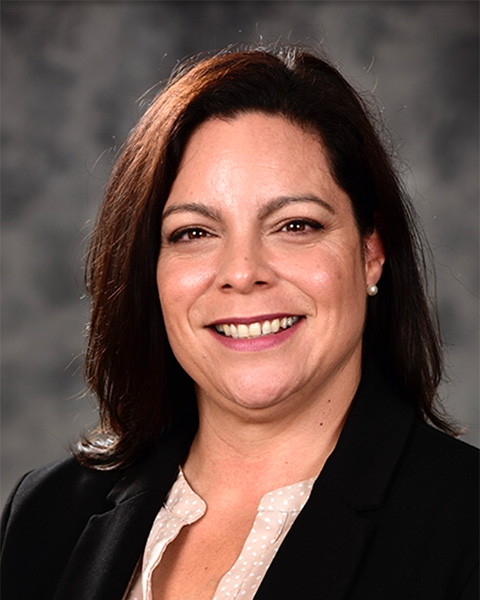 Dr. Perez Lugo is an environmental sociologist ascribed to the UTRGV's Department of Sociology where she teaches courses related to environmental issues and disaster studies. She obtained her Ph.D. from Rutgers, The State University of New Jersey in 2003. Her areas of interest are vulnerability to natural hazards and the management of critical infrastructure such as electrical systems. Dr. Perez-Lugo's work has been widely published in disciplinary and interdisciplinary journals like Organizations and the Environment, Professional Geographer, Sociological Inquiry, and in several edited volumes on areas related to energy democracy and vulnerability.
Dr. Perez Lugo is an environmental sociologist ascribed to the UTRGV's Department of Sociology where she teaches courses related to environmental issues and disaster studies. She obtained her Ph.D. from Rutgers, The State University of New Jersey in 2003. Her areas of interest are vulnerability to natural hazards and the management of critical infrastructure such as electrical systems. Dr. Perez-Lugo's work has been widely published in disciplinary and interdisciplinary journals like Organizations and the Environment, Professional Geographer, Sociological Inquiry, and in several edited volumes on areas related to energy democracy and vulnerability.
Course Redesign Project and Experience
Dr. Perez Lugo redesigned her Introduction to Sociology course to use the OpenStax Introduction to Sociology 3e open-source textbook. She also utilized YouTube videos and streaming movies available through the university library’s databases to discuss sociological themes such as research methods, sociological theory, gender, groups and organizations, among other topics. She felt lucky that there were so many open-source materials related to sociological themes and issues she could use in her course. Her students were surprised by the no-cost designation and responded very positively to the news. Overall, Dr. Perez Lugo felt a sense of academic and personal satisfaction once she found all the materials she wanted to intertwine into her newly designed course.
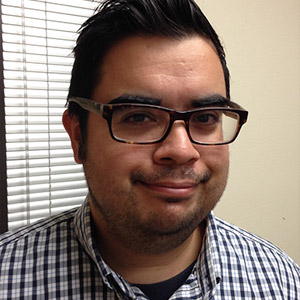 Dr. Ridge graduated from the University of Iowa with a Ph.D. in History and moved to the Rio Grande Valley in the fall of 2012. He started teaching at UTPA in 2013 and then was hired at UTRGV when the new university began. He teaches introductory courses in American History and in Mexican American History, both in-person and online.
Dr. Ridge graduated from the University of Iowa with a Ph.D. in History and moved to the Rio Grande Valley in the fall of 2012. He started teaching at UTPA in 2013 and then was hired at UTRGV when the new university began. He teaches introductory courses in American History and in Mexican American History, both in-person and online.
Project
As part of his involvement with the Affordable Textbook Adoption Grant program, he redesigned his American History I course for the Fall 2022 semester. This mostly involved changing the assigned readings in the syllabus for the semester. In his redesign, he assigned The American Yawp, which is an Open Educational Resource textbook. He also assigned The American Yawp Reader: A Documentary Companion to the American Yawp, which consists of primary sources from American history. Traditionally Dr. Ridge gives several assignments throughout the semester linked to specific sources in an assigned reader. In order to achieve this his redesign also consisted of the creation of several new assignments to align with the newly assigned reading materials.
Course Redesign Experience
While Dr. Ridge was previously aware of the concept of Open Educational Resources, he had not investigated them until he participated in the Open Textbook Review Workshop in the Fall of 2021. Through this program, he reviewed The American Yawp: A Massively Collaborative Open U.S. History Textbook which is one of the leading free textbooks available in his field. He was impressed with the quality of the book and the companion reader so he selected them when it came time to redesign his course with OER materials.
Since The American Yawp uses a traditional timeline and structure throughout the textbook, redesigning the course went smoothly and was not time consuming. The most challenging part was creating the assignments later in the semester, but since The American Yawp Reader had an excellent variety of sources, this was not a problem.
Student Feedback
In several of his courses, Dr. Ridge elicited student feedback about the use of the free books and received positive feedback. Several students mentioned they were happy not to have to buy more books and that this had lessened their financial burden for the semester. Since the books he assigned were easily available online and could be easily downloaded as pdfs, several students mentioned that this was convenient and made the beginning of the semester less stressful.
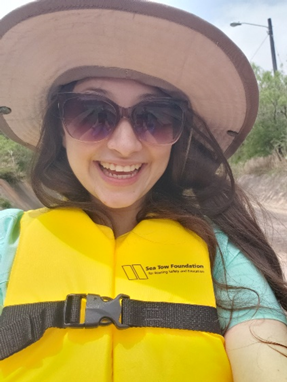 Valley native, Viviana Trevino is a curious microbiologist, gardener, writer, UTRGV graduate, and Lecturer in the Biology Department at UTRGV where she teaches a diverse set of the core Biology courses and serves as the Academic Coordinator for Anatomy & Physiology II laboratories. Additionally, Viviana is part of the Provenzano Bacterial Genetics Research Lab focusing on endemic Vibrio cholerae research. A lifetime along the Rio Grande River, and by the border has resulted in a unique outlook and cultural identity that resonates with UTRGV students and faculty alike.
Valley native, Viviana Trevino is a curious microbiologist, gardener, writer, UTRGV graduate, and Lecturer in the Biology Department at UTRGV where she teaches a diverse set of the core Biology courses and serves as the Academic Coordinator for Anatomy & Physiology II laboratories. Additionally, Viviana is part of the Provenzano Bacterial Genetics Research Lab focusing on endemic Vibrio cholerae research. A lifetime along the Rio Grande River, and by the border has resulted in a unique outlook and cultural identity that resonates with UTRGV students and faculty alike.
Course Redesign Project and Experience
Ms. Trevino redesigned her Biology II course. It was a challenge to redesign the course but it allowed her to really evaluate what information is important enough to keep and rearrange to meet the student learning objectives. Additionally, in a way, it helped her to understand how to better structure the content in a way that makes sense and is easy to unpack based on the two different presentation styles and her own.
Student Feedback
Her students were generally relieved (a sigh of relief was actually heard when this announcement was made) not to have to purchase the book after hearing the announcement. They expressed so much relief not to have to expend great deals of money on their textbook and accompanying materials, This in itself provided all the reasoning and purpose for the complete course redesign.
Reflections
Ms. Trevino believed taking on this project was a worthwhile endeavor benefiting both the students and herself. It provided her the opportunity to analyze how the course's structure presentation differed from the various textbooks and worked to identify the most effective methods for the delivery of the information.
Academic Year 2022 - 2023 Advocates
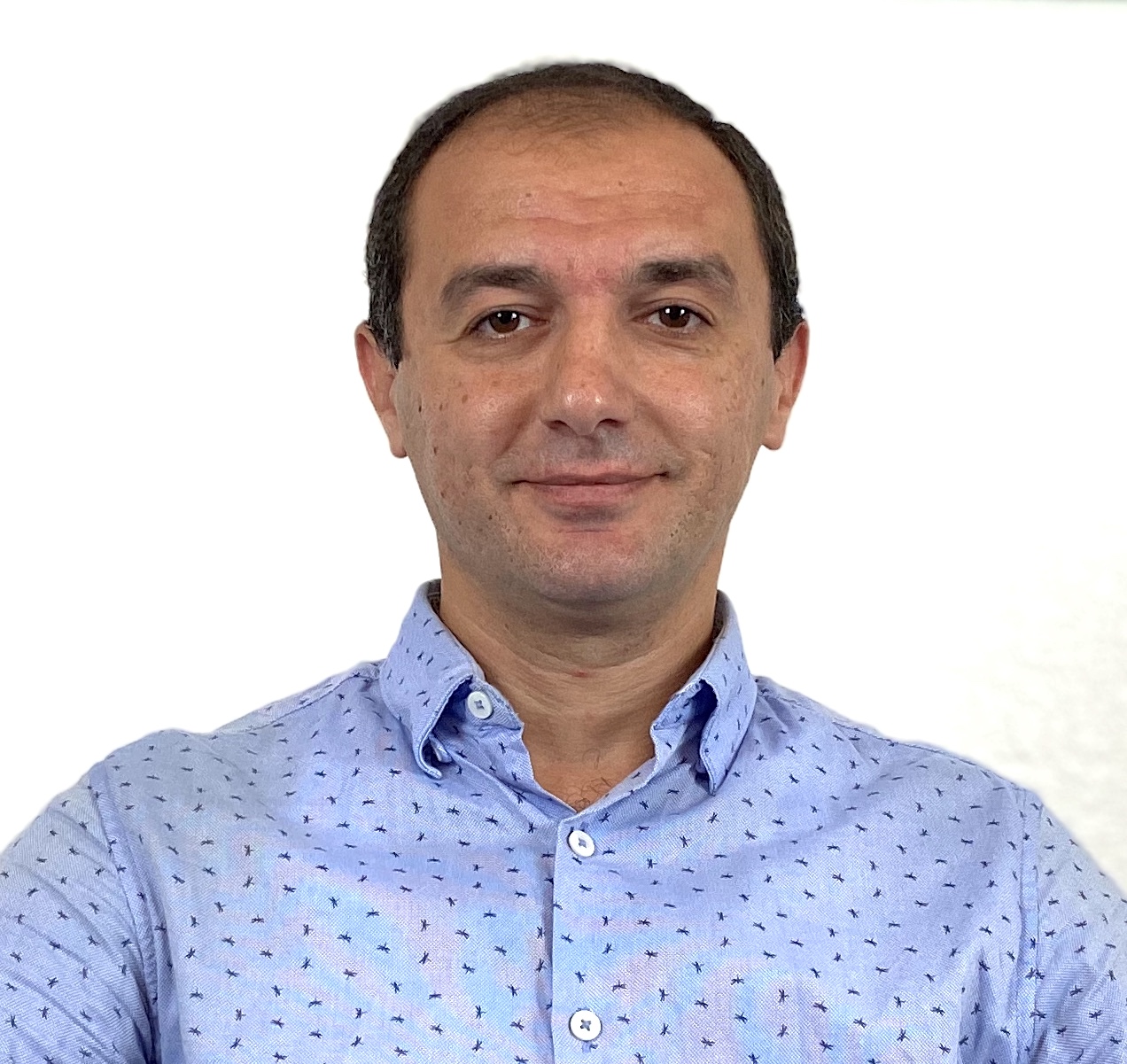
Dr. Mkhitar Hobosyan is currently a lecturer in the Department of Physics and Astronomy where he teaches introductory and upper level physics courses. Dr. Hobosyan moved from Armenia to the US in 2011 to pursue a physics degree and has been using Open Educational Resources in his classes for the last few years. His areas of expertise include nano-energetic materials, thermodynamics, nanostructured materials processing and characterization, and next generation rechargeable batteries.
Project and Experience
Dr. Hobosyan completely redesigned his Physics for Scientists and Engineers I course to use an OpenStax textbook which included PowerPoint slides, in-class assignments, homework, and exams. He enjoyed the opportunity he had with the OpenStax book to creatively use and modify the available material to suit the needs of his course. In his opinion, the pre-designed ancillary materials he gets from commercial textbook publishers are often too difficult or impossible to modify. When redesigning his physics course to use open resources, he did not run into those limitations with the OpenStax ancillary resources–he had ample opportunities to modify the course and its materials as he liked.
Student Feedback
Dr. Hobosyan’s students were glad and appreciative when they saw that they would not have to purchase materials for the course. They were especially delighted to receive the PowerPoint slides that came with the open textbook. In fact, many students commented in the course feedback that the PowerPoint slides and lectures were sufficient information to succeed in the class. Dr. Hobosyan pointed out that the high quality of the PowerPoint slides speaks to the high quality of the open textbook itself.
Reflections
Dr. Hobosyan recognizes that there are great OER materials and textbooks that can be used to design a course and that allow faculty the freedom to modify the extra teaching materials for their course. He knows the students benefit greatly from the work put into adopting an OER textbook and its materials, and he thinks the efforts are well worth it.
In closing, Dr. Hobosyan points out that while traditional textbooks in their 9th or 12th editions are highly polished and have excellent accompanying teaching materials, they come at an exceptionally high cost to students. OER materials have been improved over the last few years, so he asks faculty to please give these materials a chance. They may be surprised at the quality of the resources and the freedom one has to modify them for their course.
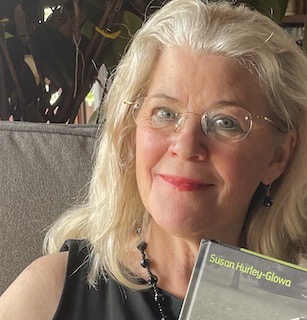 Dr. Susan Hurley-Glowa is a Professor at University of Texas Rio Grande Valley where she teaches ethnomusicology and Western music history. A Fulbright scholar, she has published widely on the music of Cabo Verde, West Africa. These include the monograph Songs for Cabo Verde: Norberto Tavares’s Musical Visions for a New Republic (2021: U of R/Eastman Press), numerous articles, and a documentary film. She earned a M.A. and Ph.D. in ethnomusicology at Brown University. Susan also holds degrees in music performance from University of Louisville, Freiburg Conservatory, and SUNY Potsdam. She has played horn in professional orchestras in America and Germany.
Dr. Susan Hurley-Glowa is a Professor at University of Texas Rio Grande Valley where she teaches ethnomusicology and Western music history. A Fulbright scholar, she has published widely on the music of Cabo Verde, West Africa. These include the monograph Songs for Cabo Verde: Norberto Tavares’s Musical Visions for a New Republic (2021: U of R/Eastman Press), numerous articles, and a documentary film. She earned a M.A. and Ph.D. in ethnomusicology at Brown University. Susan also holds degrees in music performance from University of Louisville, Freiburg Conservatory, and SUNY Potsdam. She has played horn in professional orchestras in America and Germany.
Course Redesign Project and Experience
Dr. Hurley-Glowa redesigned her Music History I course around OER readings and scores and switched to a hybrid format. She switched from a $129 commercial textbook to free and open resources saving her students an approximated $4,131. She reflects that it was challenging to find the right level of materials, but with some help from colleagues and librarians, Dr. Hurley-Glowa was able to locate readings and musical scores for the course. She advises other faculty thinking of redesigning their courses to make sure enough time is set aside to work on the course–especially if changing modalities at the same time!
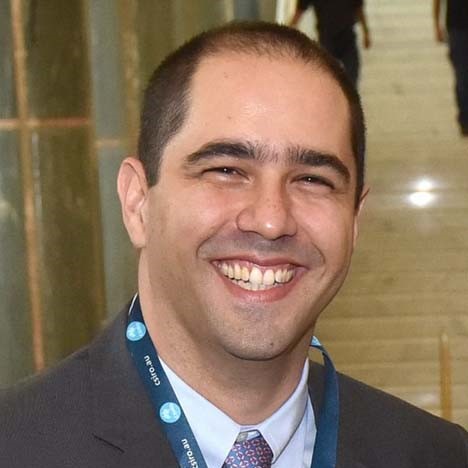 Dr. Juan Madrid is an assistant professor in the Department of Physics and Astronomy. He has been using OER in his classes since he came to UTRGV in 2020. He is passionate about saving students money on their education–especially the population served at UTRGV. Dr. Madrid's research field is astronomy, both observational and theoretical. He works in particular on globular clusters, AGN jets, and radio astronomy.
Dr. Juan Madrid is an assistant professor in the Department of Physics and Astronomy. He has been using OER in his classes since he came to UTRGV in 2020. He is passionate about saving students money on their education–especially the population served at UTRGV. Dr. Madrid's research field is astronomy, both observational and theoretical. He works in particular on globular clusters, AGN jets, and radio astronomy.
Project
When Dr. Madrid came to UTRGV, he had to select the materials and textbooks he would adopt for his classes. He made the conscious choice then to search for freely available textbooks and to create his own assignments and teaching materials. The ultimate goal was to design zero-cost classes, or classes for which students do not need to pay any extra money at all. In his first semester at UTRGV, he taught physics using an OpenStax textbook. Through a library OER training, he learned about the additional instructional resources offered by OpenStax which enriched his course and validated his decision to use OER.
Student Feedback
Dr. Madrid’s students have been very receptive to open textbooks and free homework systems. They have told him: "College is already expensive, we don't need the extra cost of textbooks and homework services."
Reflections
The exorbitant price of textbooks in the field of physics and astronomy is still fresh in Dr. Madrid’s mind, even though his time as a student is more than a decade behind him. Because he understands the financial needs of the majority of the student population at UTRGV, he remarks that requiring his students to purchase expensive textbooks and homework services seems, frankly, immoral. Dr. Madrid never looked back on his decision to adopt open educational resources and design zero-cost classes. He has had 454 students during his time at UTRGV and is proud to say that not a single one had to pay an extra cent to take his classes. He calculates their total savings at about $142,500 in textbooks and homework systems.
 Dr. Beatrice Mendez Newman, Professor in Writing and Language Studies, is an enthusiastic proponent of OER, having integrated OER into most of her classes since Spring 2020. Her recent presentations and writing focus on the continued pedagogical and professional growth afforded through online learning. “When the Classroom Becomes a Screen: Finding Talent Zones for Teaching” was published in 2020 in The English Journal just after schools and universities shifted to full online teaching without adequate training and preparation for teachers. At the 2022 Global Society of Online Literacy Educators Conference, she collaborated with a student to present “Leaving Room for Learning: Exploring Student-Created Makerspace Ecologies in OWI.” Dr. Newman’s upcoming publication will be in Praxis: A Writing Center Journal: “Counterstory in the Center: Replacing Privileged Pedagogy with Brave Teaching of Writing.” Dr. Newman loves teaching online. She believes that OER is an integral component in ecologies of online learning.
Dr. Beatrice Mendez Newman, Professor in Writing and Language Studies, is an enthusiastic proponent of OER, having integrated OER into most of her classes since Spring 2020. Her recent presentations and writing focus on the continued pedagogical and professional growth afforded through online learning. “When the Classroom Becomes a Screen: Finding Talent Zones for Teaching” was published in 2020 in The English Journal just after schools and universities shifted to full online teaching without adequate training and preparation for teachers. At the 2022 Global Society of Online Literacy Educators Conference, she collaborated with a student to present “Leaving Room for Learning: Exploring Student-Created Makerspace Ecologies in OWI.” Dr. Newman’s upcoming publication will be in Praxis: A Writing Center Journal: “Counterstory in the Center: Replacing Privileged Pedagogy with Brave Teaching of Writing.” Dr. Newman loves teaching online. She believes that OER is an integral component in ecologies of online learning.
Project
With support from the Affordable Textbook Adoption Grant awarded to Dr. Newman in Spring 2020, she completely redesigned her English 1302 course to be taught with zero-cost resources. Additionally, Dr. Newman enlisted the help of a librarian to support her students in a multimodal, OER-based research project that remixed five research levels, each level moving incrementally toward the final project. By the time UTRGV classes were forced to move to full online instruction in Spring 2020, Dr. Newman reports that her English 1302 students had already mastered the craft of doing OER research. Before the Fall 2020 semester, she constructed resources, like video micro-lessons and learning activities, to help teach future cohorts of students how to navigate OER repository sites and conduct OER-based research. It was a time-consuming task, but it helped provide the scaffolding her students needed to learn and practice this new mode of research.
Student Feedback
A comment Dr. Newman frequently gets from students when she introduces them to OER is “Why hasn’t anyone told us about this before?” Her students are often excited to find abundant open educational resources for her class assignments as well as resources to use in their other classes at UTRGV. One of her nontraditional students wrote a letter to her about his experience with OER which he gave permission to share here:
I cannot put into words how much OER has helped me this semester. I come from a time when doing research meant spending a week in the library with the hopes of finding a couple of resources I could use for my paper. Students now-a-days might not be aware of how much work that was. When my English Professor, Dr. Newman, introduced me to [the OER] catalog, my jaw dropped. I had the done the research I needed to do in less than a day! The problem was that there was so much information to choose from that I could not pick just one. The phrase “a kid in the candy store” comes to mind when I try to describe to you how the situation looked like. I want to thank anyone, and everyone, involved in this program profusely! On top of everything, ITS FREE!! To think I saved money by not buying expensive books for the class, especially now, with everything that’s going on. I really hope that O.E.R. continues to be a reliable source for students in our university. Once again, Thank You for having this amazing catalog available for all students.
Reflections
Dr. Newman doesn’t want faculty to dismiss the pedagogical power of OER without at least checking out the resources. She used to think that a good textbook or class resource had to come from a big publisher. Within her first explorations of OER, her mind was changed. She reflects that OER are quite different from expensive textbooks because OER are written for students, with their needs in mind. Textbooks are ostensibly aimed at student audiences, but textbook authors often demonstrate “expert blindness,” forgetting that students are novices and need learner-centered entry points into disciplinary understanding. OER textbooks consistently have what she refers to as a “learner-centered vibe.” In closing, she believes the accessibility and variety of open educational resources also motivate students to move far past what she asks them to do in class, discovering materials that they can use not just in her classes but in their other classes as well.
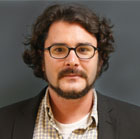 Dr. Jason Popan is a social psychologist with a research focus on the psychology of political intergroup relations and political participation. His teaching focus is primarily undergraduate and graduate statistics and research methods coursework in psychology.
Dr. Jason Popan is a social psychologist with a research focus on the psychology of political intergroup relations and political participation. His teaching focus is primarily undergraduate and graduate statistics and research methods coursework in psychology.
Project and Experience
Dr. Popan adapted his Basic Statistics for Psychology course to use an open textbook and free statistical software. He was able to find a resource with a similar structure to the book he had previously used for his statistics course. He did not feel like it was a burden to make the switch to an open textbook. Several students have already reached out to Dr. Popan to thank him for using affordable resources. Their feedback has motivated him to make similar changes to his other courses.
Reflections
Dr. Popan had an entirely positive experience redesigning his course to use open materials. He remarked that changing textbooks can sometimes be a burden, but in the case of his course redesign, the process was relatively seamless. He found that the availability, quality, and course compatibility of open textbooks has increased dramatically in recent years and he was grateful for the support and motivation from the librarians throughout the process.
Academic Year 2021 - 2022 Advocates
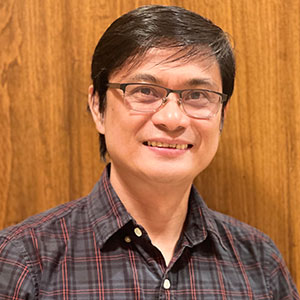 Dr. Edgar Corpuz is an Associate Professor at the Department of Physics and Astronomy. He teaches a wide variety of courses including lower and upper-division physics courses, and graduate courses for the MSIS in Science and Technology program. He has been implementing student-centered teaching techniques in his courses which include lecture-demonstration and Team-Based Learning (TBL) approach. His research interests include students’ modeling of microscopic phenomena, microgenetic analysis of the dynamics of students’ knowledge construction of physics concepts, facilitating conceptual change in physics, improving students’ physics problem solving skills and performance, use of technology in the classroom especially the integration of web-based interaction system to enhance students’ motivation and conceptual understanding, and investigating the impact of inquiry-based learning materials in students’ ability to apply concepts in new situations. Dr. Corpuz currently serves as the graduate program coordinator of the MSIS in Science and Technology degree program. He had served as a principal investigator of a Robert Noyce grant which have significant components in the recruitment, retention, and mentoring of pre-service high school physics and chemistry students. In addition, he also served as a PI for another NSF grant under the NSF S-STEM program which involves the recruitment, retention, training, and development of predominantly Hispanic STEM majors in the physical sciences (chemistry and physics).
Dr. Edgar Corpuz is an Associate Professor at the Department of Physics and Astronomy. He teaches a wide variety of courses including lower and upper-division physics courses, and graduate courses for the MSIS in Science and Technology program. He has been implementing student-centered teaching techniques in his courses which include lecture-demonstration and Team-Based Learning (TBL) approach. His research interests include students’ modeling of microscopic phenomena, microgenetic analysis of the dynamics of students’ knowledge construction of physics concepts, facilitating conceptual change in physics, improving students’ physics problem solving skills and performance, use of technology in the classroom especially the integration of web-based interaction system to enhance students’ motivation and conceptual understanding, and investigating the impact of inquiry-based learning materials in students’ ability to apply concepts in new situations. Dr. Corpuz currently serves as the graduate program coordinator of the MSIS in Science and Technology degree program. He had served as a principal investigator of a Robert Noyce grant which have significant components in the recruitment, retention, and mentoring of pre-service high school physics and chemistry students. In addition, he also served as a PI for another NSF grant under the NSF S-STEM program which involves the recruitment, retention, training, and development of predominantly Hispanic STEM majors in the physical sciences (chemistry and physics).
Project
He redesigned PHYS 2425 (Physics for Scientists and Engineers Part I) to have the course materials completely free to students. He adopted a textbook from OpenStax, created lecture presentations based on the OER textbook, carefully chose homework sets that align with the weekly course objectives, recorded microlectures, and developed formative and summative assessments based on the new lecture materials.
Course Redesign Experience
He found redesigning his course very challenging which entailed a lot of work on his part. There is still more he would like to do to further improve his OER course to make it more responsive to the needs of his students and to improve the attainment of the course learning outcomes. He believes these challenges and work are worth it considering the benefit to UTRGV students. He is confident that the OER materials he adopted and created are very helpful resources in promoting meaningful learning among his students and are also very accessible to them which he believes has increased the student interaction with the course materials. He likes the idea of being able to customize the OER materials/resources to better suit the learning needs of his student as well as his teaching needs.
Student Feedback
His students were happy and appreciative of his efforts in making the curriculum materials completely free for the students especially during this time of pandemic where most of them are struggling financially.
Here are some direct quotes from his students.
“A major advantage to this course was that the curriculum was free for all students. Given the turbulent times we are currently in and the many students and families struggling financially, this was definitely a thoughtful and beneficial aspect of the course that our professor provided us with.” [Student 1]
“I would say that Dr. Corpuz Open Education Resources physics course was a great for the benefits it offered while at the same time giving a great learning experience to the students. The course was well structured with precise locations for important topics in our free open-source book which, made the course a more enjoyable experience with not having to worry about the price of learning resources and allowing those funds to be allocated elsewhere.” [Student 2]
Reflections
One of the things Dr. Corpuz likes about adopting OER resources is that it allows faculty to customize it to better suit the learning needs of their students. It also allows one more freedom to make improvements/enhancements in the future without worrying too much about copyright issues. If carefully designed, an OER course will have a great potential of making an impact on the learning of students while at the same time making course materials more affordable and accessible to students. He would consider the transitioning of his PHYS 2425 (Physics for Scientists and Engineers) to be one of the most rewarding teaching accomplishments he has had so far. He plans to slowly transition all the physics courses that he teaches to adopt OER resources with the aim to make his course curriculum materials completely free and accessible to his students.
He is appreciative that UTRGV’s University Library is currently encouraging faculty members to adopt OER resources and is thankful for the opportunity to participate in OER course development through the Affordable Textbook Adoption Grant.
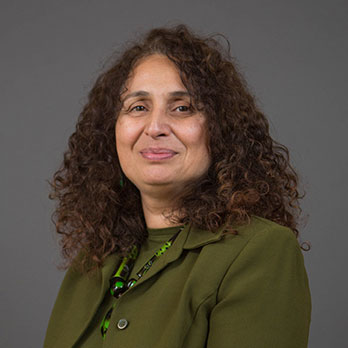 Dr. Leyla Feize is an Associate Professor at the University of Texas Rio Grande Valley, School of Social Work. She has taught many courses in both BSW and MSW levels including Generalist Social Work Practice I, Advanced Clinical Assessment, and Advanced Policy Analysis. She has conducted research in areas of cultural competence, self-awareness, and mindfulness. Her research interests include social work education, minority mental health, Immigration, and Autism/ADHD. She is also interested in Interdisciplinary collaboration. She designed the interdisciplinary course of "Introduction to Play, Art and Music Intervention" in collaboration with UTRGV School of Music and published the book "OUR STORIES, OUR CULTURAL VOICES: A Collection of Folklore from Rio Grande Valley" in collaboration with UTRGV School of Art. She has more than 25 years of experience in the mental health profession arena and is currently licensed as a Clinical Social Worker by the state of Texas. She is an editor of the Journal of Mental Health and Social Behaviour. She is an active member of the Council on Social Work Education (CSWE) and the National Association of Social Workers (NASW). She is also a member of ResearchGate and LinkedIn. She values community engagement and has had collaborations with, Texas Civil Right Project, ProBar, Team Mario, PSJA Special Education, Edinburg School District, Region One Education, and South Texas College. Her publications are available on Google Scholar.
Dr. Leyla Feize is an Associate Professor at the University of Texas Rio Grande Valley, School of Social Work. She has taught many courses in both BSW and MSW levels including Generalist Social Work Practice I, Advanced Clinical Assessment, and Advanced Policy Analysis. She has conducted research in areas of cultural competence, self-awareness, and mindfulness. Her research interests include social work education, minority mental health, Immigration, and Autism/ADHD. She is also interested in Interdisciplinary collaboration. She designed the interdisciplinary course of "Introduction to Play, Art and Music Intervention" in collaboration with UTRGV School of Music and published the book "OUR STORIES, OUR CULTURAL VOICES: A Collection of Folklore from Rio Grande Valley" in collaboration with UTRGV School of Art. She has more than 25 years of experience in the mental health profession arena and is currently licensed as a Clinical Social Worker by the state of Texas. She is an editor of the Journal of Mental Health and Social Behaviour. She is an active member of the Council on Social Work Education (CSWE) and the National Association of Social Workers (NASW). She is also a member of ResearchGate and LinkedIn. She values community engagement and has had collaborations with, Texas Civil Right Project, ProBar, Team Mario, PSJA Special Education, Edinburg School District, Region One Education, and South Texas College. Her publications are available on Google Scholar.
Project and Experience
Dr. Leyla Feize designed her Special Topics in Social Work: Introduction to Play, Art & Music course so that all required materials would be available at no cost to students. She also worked on a Primary Care Behavioral Health model which integrates health and mental health for her course with the school of Medicine and the Department of Counseling. She was able to provide many resources to her students and described her experience designing the course with free resources as new and interesting. Because she chose to use library licensed ebooks for her class, she helped students save an estimated $408 in textbook fees.
Reflections
Dr. Feize encourages other faculty to just try using free resources in their courses. In her experience, the Scholarly Communications Department within the library was very helpful in the process of finding the necessary resources for her students.
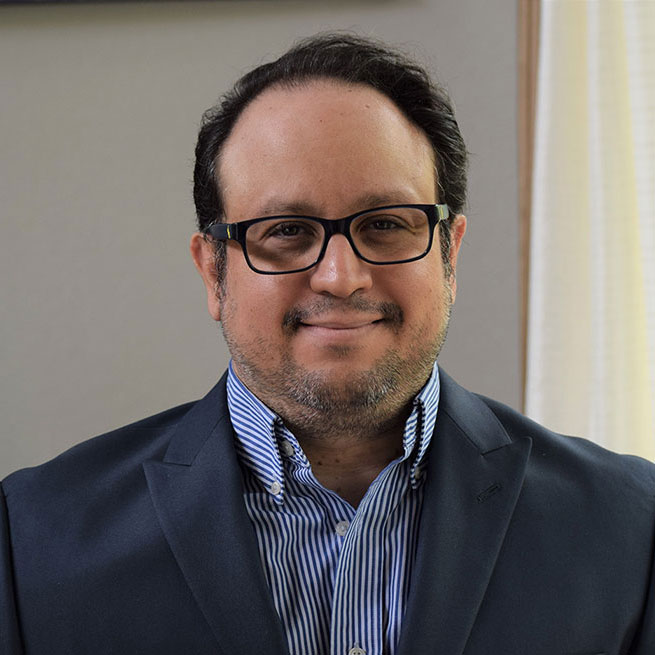 Dr. David Hinojosa is a full-time lecturer for the Communication department at UTRGV. He has taught Interpersonal Communication, Interviewing, Group Communication, Introduction to Communication, but mainly teaches Public Speaking. He is also a Core Coordinator of COMM 1315-Public Speaking at UTRGV.
Dr. David Hinojosa is a full-time lecturer for the Communication department at UTRGV. He has taught Interpersonal Communication, Interviewing, Group Communication, Introduction to Communication, but mainly teaches Public Speaking. He is also a Core Coordinator of COMM 1315-Public Speaking at UTRGV.
Project
As a result of the pandemic, Dr. Hinojosa redesigned his public speaking course to an online asynchronous modality and switched to using the open textbook, Exploring Public Speaking: The Free Dalton State College Public Speaking Textbook, 4th Edition. He knew he would be saving students money in a time when they were feeling the economic effects of the pandemic.
Course Redesign Experience
He describes the experience of redesigning his public speaking course as challenging given public speaking is a skill that involves a live audience. Dr. Hinojosa needed to maintain some of these interactions while teaching public speaking concepts online. Using an open textbook was a natural choice for his online class because the textbook and resources could easily be uploaded to Blackboard and accessed by students to complete assignments such as quizzes.
Reflections
Hinojosa felt satisfied with the experience of finding an OER that fit his needs and helping students save some money. His students were appreciative of the opportunity to pay zero extra fees for his public speaking class and he received positive feedback from them.
 Edna Orozco is a lecturer, assessment coordinator, and undergraduate coordinator in the Department of Manufacturing & Industrial Engineering. Her area of expertise is manufacturing engineering with a concentration in polymers and additive manufacturing. She usually teaches Intro to Manufacturing Engineering, Manufacturing Processes, and Manufacturing Engineering Graphics. She is currently an EdD student at UTRGV in Educational Leadership. In addition, Orozco is a former Specialist in the Texas Army National Guard and a former administrator in secondary education K-12.
Edna Orozco is a lecturer, assessment coordinator, and undergraduate coordinator in the Department of Manufacturing & Industrial Engineering. Her area of expertise is manufacturing engineering with a concentration in polymers and additive manufacturing. She usually teaches Intro to Manufacturing Engineering, Manufacturing Processes, and Manufacturing Engineering Graphics. She is currently an EdD student at UTRGV in Educational Leadership. In addition, Orozco is a former Specialist in the Texas Army National Guard and a former administrator in secondary education K-12.
Project and Experience
Orozco redesigned her hybrid Manufacturing Processes (MANE3364) course so that all required materials would be available at no cost to students. She found the process of redesigning her course to be difficult because she and the Scholarly Communications librarian needed to look into several books before finding one that worked as a replacement. She ended up combining resources and using library licensed ebooks that were a good fit for her specific course. It is estimated that she saved her students $10,760 by making this switch.
Reflections
Orozco thinks that sometimes faculty are unaware of all resources available either online or in the library--especially when it comes to OER. She encourages faculty to give open resources a try because she believes there is nothing to lose and plenty to gain.
 Dr. Pokhrel is a full-time lecturer in the Department of Physics and Astronomy. He has been teaching physics at different levels at UTRGV since 2016. In addition to teaching, he is also involved in research and development. His research interests are in lanthanide spectroscopy and spectroscopy-based instrumentation. Additionally, he is working on the nuclear waste immobilization project designing nuclear waste immobilization hosts that can withstand an extremely high energy radiation environment. Dr. Pokhrel has authored or co-authored over 30 publications in peer-reviewed journals. In addition, he has presented his research work at national and international conferences such as APS, SPIE, and MRS.
Dr. Pokhrel is a full-time lecturer in the Department of Physics and Astronomy. He has been teaching physics at different levels at UTRGV since 2016. In addition to teaching, he is also involved in research and development. His research interests are in lanthanide spectroscopy and spectroscopy-based instrumentation. Additionally, he is working on the nuclear waste immobilization project designing nuclear waste immobilization hosts that can withstand an extremely high energy radiation environment. Dr. Pokhrel has authored or co-authored over 30 publications in peer-reviewed journals. In addition, he has presented his research work at national and international conferences such as APS, SPIE, and MRS.
Project
Through the Affordable Textbook Adoption grant offered through the University Library, he was able to offer the Physical Science course PSCI 1421 using affordable course materials. These are large courses with over 100 students each semester. Since then he has voluntarily adopted an OpenStax textbook for his PSCI 1422 course and is continuously optimizing the course and content. Altogether, he is proud of his achievements and that he was able to save UTRGV students from costly materials offered by publishers.
Student Feedback
Dr. Pokhrel reports having over 90% positive evaluations for his courses taught using open materials. He first offered PSCI-1422 with the open textbook in summer 2021 and had higher than 95% positive evaluations from students. Altogether, he is proud of his achievement of saving students from costly materials offered by commercial publishers.
Reflections
He believes textbook affordability efforts are a great work to be part of. Not only are we helping students in terms of costs, Dr. Pokhrel reflects, but faculty can also produce their own versions of free materials specific to their course needs. He encourages every faculty member to offer at least one of their courses using open source materials to help save UTRGV students from costly course materials.
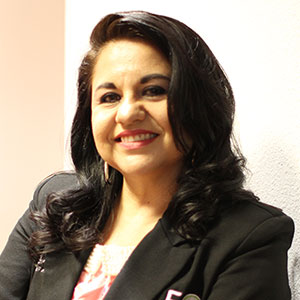 Dr. Sylvia Robles is a visionary entrepreneur, educator, researcher, and advocate of Humane-Innovation-Sustainable-based Entrepreneurship and Community Engagement by EMPOWERING her students and RGV entrepreneurs through her Adopt a Startup at UTRGV Program to develop sustainable businesses. Dr. Robles has experience with working with engineering students as an Instructor and Mentor for I-Corps teams. Also, all her courses (traditional, ITV, online asynchronous or synchronous) hold the Service Learning designation, so all her students actively impact the business community and develop soft skills. She is currently the University of Texas Rio Grande Valley Sustainability Faculty Fellow, the Collegiate Entrepreneurs' Organization at UTRGV Brownsville Faculty Advisor, and a lecturer of Entrepreneurship & Innovation at the Robert C. Vackar College of Business and Entrepreneurship/Department of International Business and Entrepreneurship.
Dr. Sylvia Robles is a visionary entrepreneur, educator, researcher, and advocate of Humane-Innovation-Sustainable-based Entrepreneurship and Community Engagement by EMPOWERING her students and RGV entrepreneurs through her Adopt a Startup at UTRGV Program to develop sustainable businesses. Dr. Robles has experience with working with engineering students as an Instructor and Mentor for I-Corps teams. Also, all her courses (traditional, ITV, online asynchronous or synchronous) hold the Service Learning designation, so all her students actively impact the business community and develop soft skills. She is currently the University of Texas Rio Grande Valley Sustainability Faculty Fellow, the Collegiate Entrepreneurs' Organization at UTRGV Brownsville Faculty Advisor, and a lecturer of Entrepreneurship & Innovation at the Robert C. Vackar College of Business and Entrepreneurship/Department of International Business and Entrepreneurship.
Project
She redesigned the course Principles of Management MGMT 3361-92S which includes a 35 hours service-learning (SL) project "Management Report" and was taught online asynchronous during summer 2020. She had the opportunity to blueprint this course and incorporated the open textbook Principles of Management from OpenStax. She hopes that more instructors will adopt this open textbook which is included in the blueprinted course.
Course Redesign Experience
Redesigning her course consisted of challenges including reviewing the new content and redesigning the Management cases so they could match the SL Management report's deliverables and the weekly materials. The textbook chapters were in a different order, and presentations needed to be modified and updated for accuracy. COLTT assisted her in creating accessible slides for students and inputting test banks for her students which required revisions of the answers throughout the semester.
Student Feedback
In the student’s reflections and course feedback, they thanked her for switching to an affordable textbook. Also, the students found the OER material and cases very interesting. The students even mentioned it would be really important to promote this so more instructors would adopt affordable teaching materials. Even though she had issues with the tests and begged students for their patience as she was using this OER material for the first time, they still gave very positive feedback.
Reflections
Overall, it was a very productive experience for Dr. Robles even though she encountered many issues before implementation and during the semester. The students' final feedback revealed how important it was for her to use quality affordable teaching materials in her course. The students learned and enjoyed the new material while saving also saving a lot of money. She was thankful for the opportunity to serve her students better.


